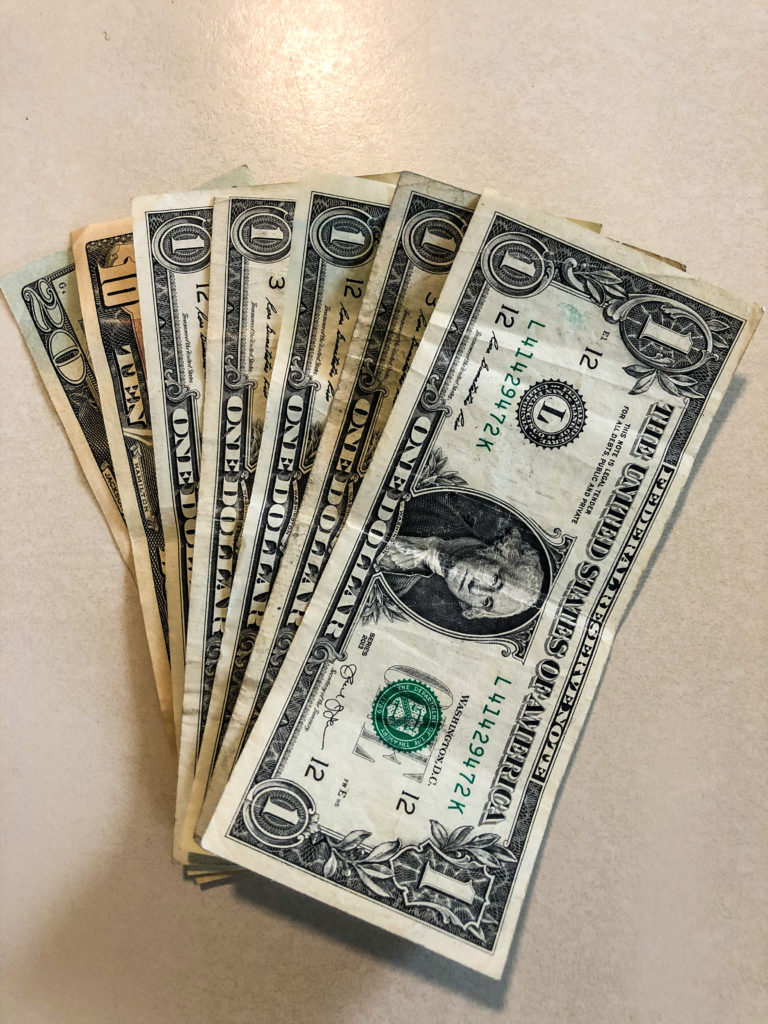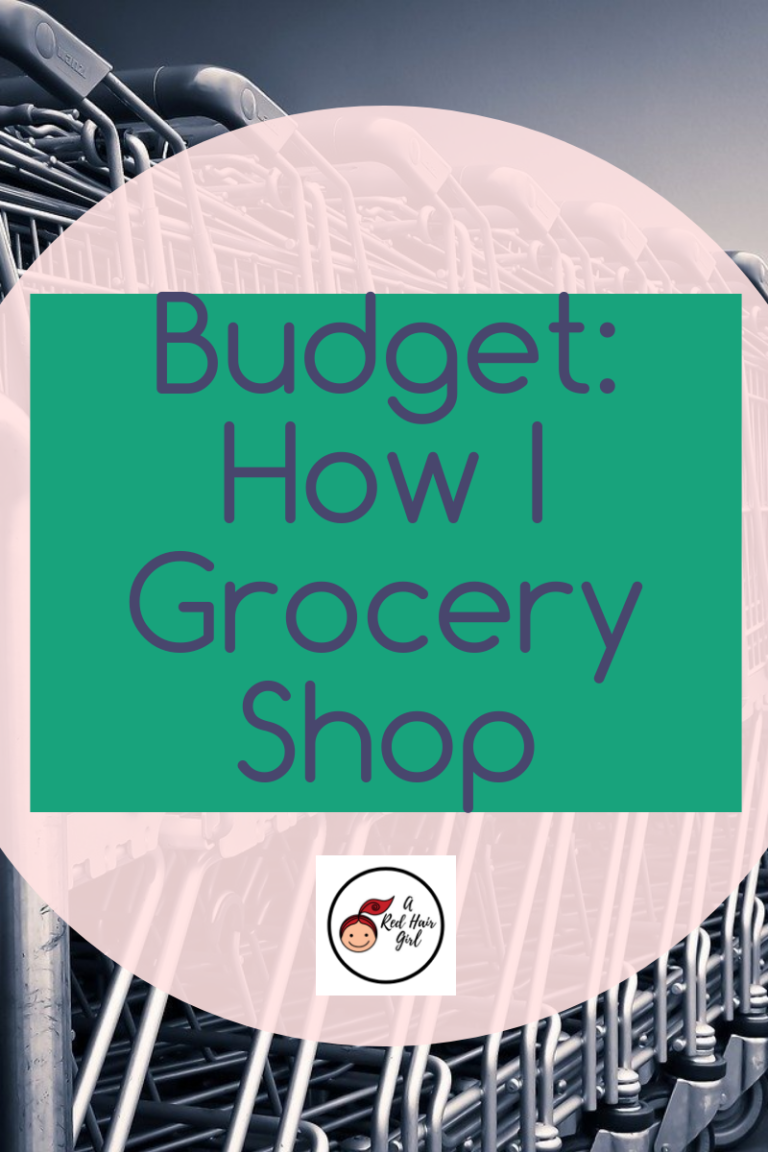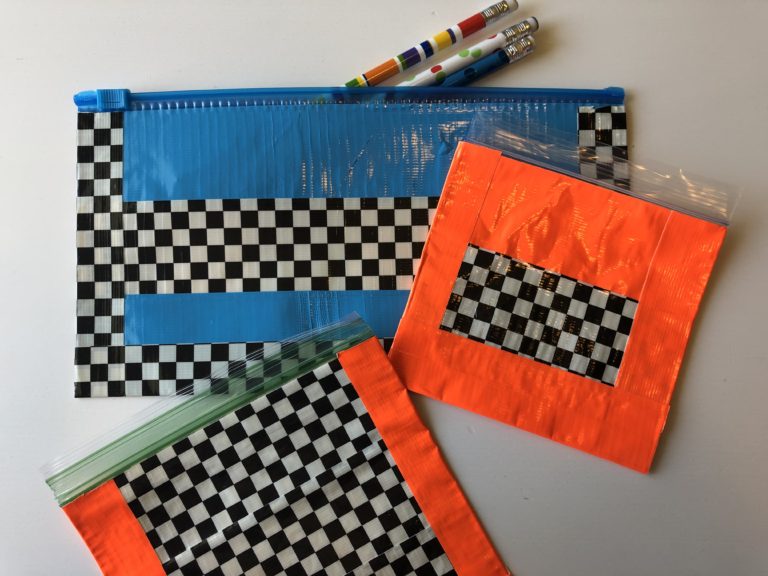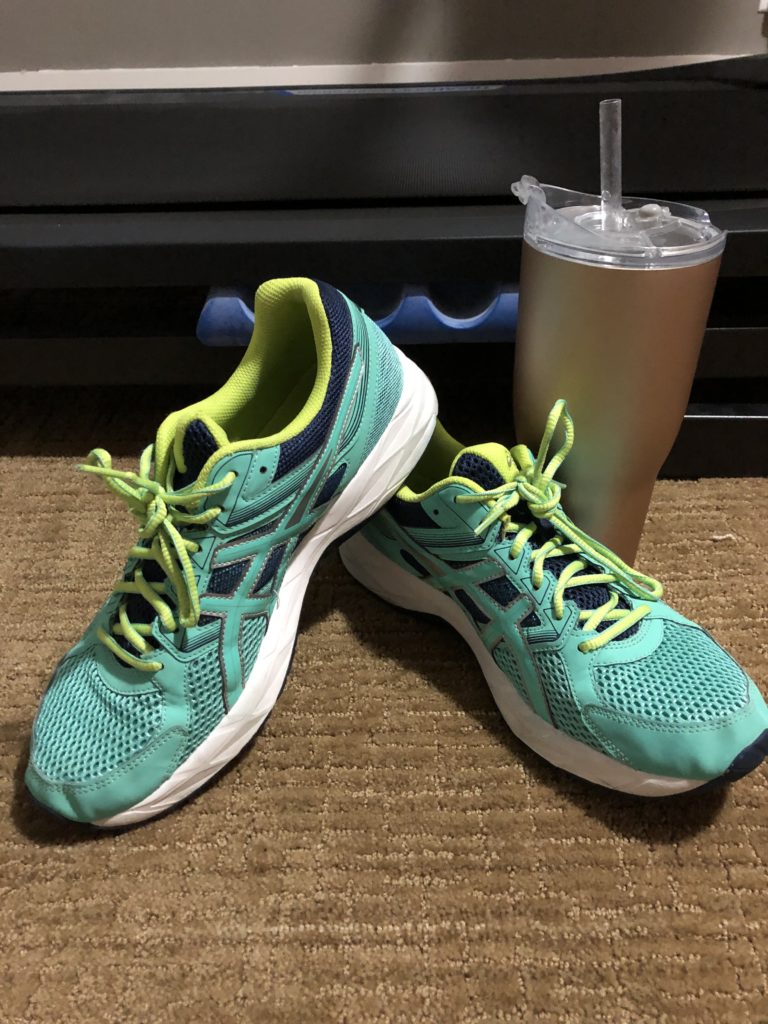Budgeting and Your Finances: Learning the Basics
This month I share with you some of my budget tips that have helped and are still helping us to pay off debt. What are you waiting for? Go read it!
Let me start off that I am not an expert, I have not gone to school in any related budgeting or finance field. I’m a women, mom, and wife on a mission to get her family out of debt, build savings, and be able to pay it forward while using these budget tips.
You may be in the same boat as me. You may not be in debt (lucky you!) but may want to have a better handle on your money so you can save for many different reasons.
This is a good time to read my budget overhaul and if we use cash or credit cards. Hopefully these will help you get more of a background on where I stand. 🙂
Today I’m going to spill all of my budgeting basics. These are things I have done personally and know the value of doing them.
Let’s get to our budget tips.
Money In vs. Money Out
First things first! If you have more money leaving your accounts every month then you have to figure out what’s going on and solve this right away. I understand there might be time when this can’t be avoided. But, please don’t give up!
You need to either make more money or stop spending so much money. Looking at your budget and what you are spending your hard earned cash on is the first thing you need to do.

If it’s simply changing what you spend or spending less on non essentials then you’ve got to get tough on yourself and stop spending on the extras.
If you truly can’t cut anything out of your budget and you already are paying for the essentials then it’s time to think about getting a second or third job. You might need to sale something that is making you stay in debt (hello fancy car or fun toys).
You will never be able to get on top of your budget and money if you constantly spend more then you are making!! So this leads me to…
Budgeting
Yep! You read that right! I’m adding budgeting into this post as well. Why? Because it’s THAT important. It is one of the best budget tips you can use. You can not truly know where your money is going unless you are budgeting consistently. Consistently!!
You have to keep track every month of money coming in, going out, and what you are saving. There are endless ways to do this. What works for me may not work for you, or it may. This is a great time to Google or search on Pinterest.

You might have to try a few different methods. But once you found one that you can do and works for you, likes like finding chocolate hidden that you forgot about. 🙂 Heaven!
Seriously guys it might take you months or more to get this figured out. Please don’t give up!! You got this! And it will make a huge difference in your life.
$1,000 Emergency Fund
Once you have a handle of where your money is going each and every month then it’s time to put money towards your $1,000 emergency fund. This needs to be easy to access without being penalized.
We have a separate savings account that is linked to all of our other accounts that is labeled Emergency Fund. It just sits there holding a $1,000 balance.

Every week, paycheck, or month try to put as much money in your emergency fund until it is fully funded at $1,000. Then ONLY use it for a true emergency and only an emergency.
Examples of what you should use this fund for:
- car breaking down
- medical emergencies
- something braking on your house that has to be fixed or replaced
- dental emergencies (not a normal cleaning)
- replacing something that puts you or your family at risk
Examples of what you should NOT use this fund for:
- going out of town last minute with some friends
- needing that really cute shirt (insert anything here that’s not life or death)
- upgrading your TV, computer, or any electronic
- replacing anything that is NOT life or death (broken game system, hub cabs, blinds, etc.)
I hope you get the point. Only use this fund in a true emergency! If you need more than what’s there, well then you have a good start. Then it’s up to your to figure out what will be the best for you and your family. This is another one of the budget tips that is talked about by many people.
Once you have used some or all of your $1,000 emergency fund what’s next?
Once the emergency is over and you have paid for it, you get your little hiney in gear and put money back into your emergency fund until it’s fully funded at $1,000.
If you even find yourselves in an emergency, okay, WHEN you find yourself in an emergency you will thank me. 🙂
Cash: Always Cash
When you are getting your money, budgeting, and finances in check you might want to seriously think about using the cash system. It makes it really easy to only spend what you have when you use cash.
If you budget $600 a month for groceries and run out with a week left, then you have to get creative. You will also have to take a look at your grocery spending for the month and figure out what went wrong. Fix it for next month so you don’t find yourself in the same place.
Using cash can be a huge pain BUT it will get your budget on track and makes it super hard to over spend. If you are truly wanting to get in gear then I’d also suggest taking your debit and credit cards out of your wallet and putting them in a safe place.

This way you can only spend the cash you have on hand. You can also just take the amount of cash you plan on spending at the grocery store or to get gas. This will require you to be prepared and have made a plan prior to leaving to the grocery store.
If you have read my Cash vs Credit Cards then you know my stance and what we do. You really need to evaluate your needs, wants, and how much self control you have.
There may be many more budget tips and finance basics but these are the ones that I feel can have the most impact on you right away. Ask yourselves these questions:
- Where do I stand on money in vs money out? What needs to be changed to make sure I have more money coming in than out?
- Do I have a budget set up? Am I sticking to that budget?
- Do I have a $1,000 emergency fund in an easily accessible account?
- Can I use my debit and credit cards responsibly? Or would it be better to start using a cash system?
Good luck with starting, continuing on, or finishing these basics in budgeting and finances. You CAN take control of them and better your financial situation!!
Xxx, Steph







This is so important – it especially needs to be taught to young people! Using cash and not credit is key!
Thanks! I think so too, it’s going to be too easy for people to get in trouble.
Thanks for all the tips, I really needed this post!
You are so welcome! I’m glad I could help. 🙂
Love these tips! I love that they are really basic and a great place to start for someone who is clueless about personal finance.
Thank you!! Sometimes we have to start at the beginning with the basics. Good luck!
Great advice!
Thank you